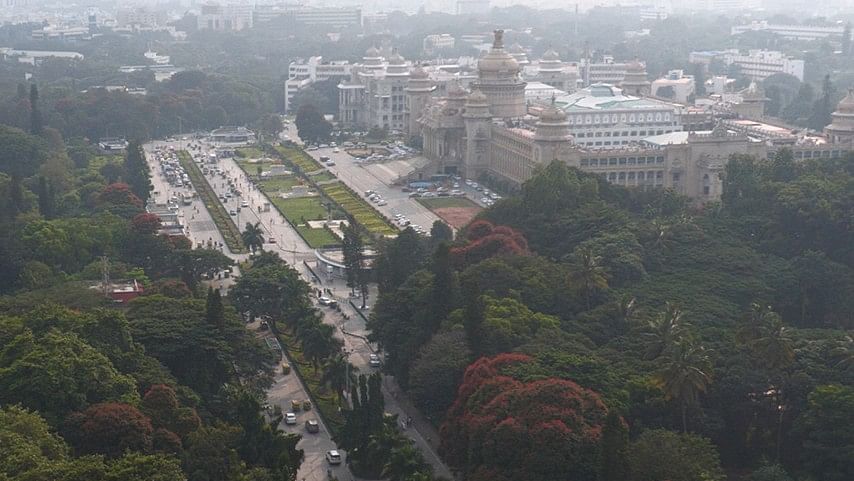
View of Bengaluru city
DH Photo
New Delhi: Bengaluru will soon have a centre to promote regional energy cooperation among India and six other countries in its neighbourhood – emerging as an alternative to a similar institution, which was set up in Islamabad almost two decades ago but failed to live up to its promises due to obstructionist policies of Pakistan.
The ‘garden city’ will have the BIMSTEC Energy Centre (BEC), which will promote regional cooperation in the sector among India, Bangladesh, Bhutan, Sri Lanka, Myanmar, Nepal and Thailand. The Government of India has signed the ‘host country agreement’ with the BIMSTEC secretariat, clearing the way for the centre to be set up in Bengaluru.
New Delhi wants the BEC in Bengaluru to boost regional energy cooperation – a task that the SAARC Energy Centre set up in Islamabad in March 2006 failed to accomplish in the past 18 years.
With SAARC (South Asian Association for Regional Cooperation) in an impasse since 2016, New Delhi has been promoting the BIMSTEC (Bay of Bengal Initiative for Multi-Sectoral Technical and Economic Cooperation) as an alternative forum for regional cooperation.
The BIMSTEC comprises seven nations, including five of the eight SAARC members. It excludes Pakistan, which India has been accusing of blocking regional connectivity projects conceived within the framework of the SAARC.
The BEC in Bengaluru will manage a regional energy database, conduct feasibility studies for the intra-BIMSTEC projects and enhance cooperation by preparing a framework for networking among national agencies of the BIMSTEC member nations. It will also promote energy security through grid interconnections, renewable energy development and realization of energy efficiency. Moreover, the Centre will foster capacity building, cross-border investments and infrastructure development for training in energy sector, according to the BIMSTEC secretariat in Dhaka.
The ‘host country agreement’ to set up the BEC in Bengaluru was signed by BIMSTEC Secretary General Indra Mani Pandey and Jaideep Mazumder, Secretary (East) at Ministry of External Affairs in the Government of India, in New Delhi on Friday.
Pakistan had been playing spoilsport and stalled several connectivity and cooperation initiatives promoted by India and other South Asian nations within the SAARC. The last SAARC summit in Kathmandu in 2014 had seen then Pakistani Prime Minister M Nawaz Sharif refusing to give his consent to two agreements conceived to facilitate road and rail connectivity within South Asia. This had prompted Prime Minister Narendra Modi to comment that the regional cooperation would continue within the SAARC or outside it. Two years later, Modi had decided against attending the 19th SAARC summit in Islamabad in the wake of a series of attacks in India by terrorists based in Pakistan. Sharif had called of the summit as other South Asian leaders had also rallied behind Modi.
As the impasse continued, no SAARC summit could take place since then. New Delhi focused on the BIMSTEC to promote regional cooperation.
The SAARC framework agreement on energy cooperation was signed in 2014, but it could do little in facilitating integrated operation of regional grid across the South Asian region and in promoting cross border power trade.
The officials in New Delhi blame it on the obstructionist policies of the government in Islamabad.
The BIMSTEC adopted a Plan of Action for Energy Cooperation in 2005. The MoU for establishing the BIMSTEC Grid Interconnection has come into force in April 2019. The BIMSTEC is now working on finalising policies for transmission of electricity and for trade, exchange of electricity and tariff mechanism. A BIMSTEC Grid Interconnection Master Plan is also under discussion within the bloc.
The energy cooperation “focused on promoting renewable energy, improving energy efficiency, developing cross-border energy trade and undertaking grid interconnections, aimed at ensuring energy security, transition to green energy and sustainable development in the Bay of Bengal region”, according to the BIMSTEC secretariat.
